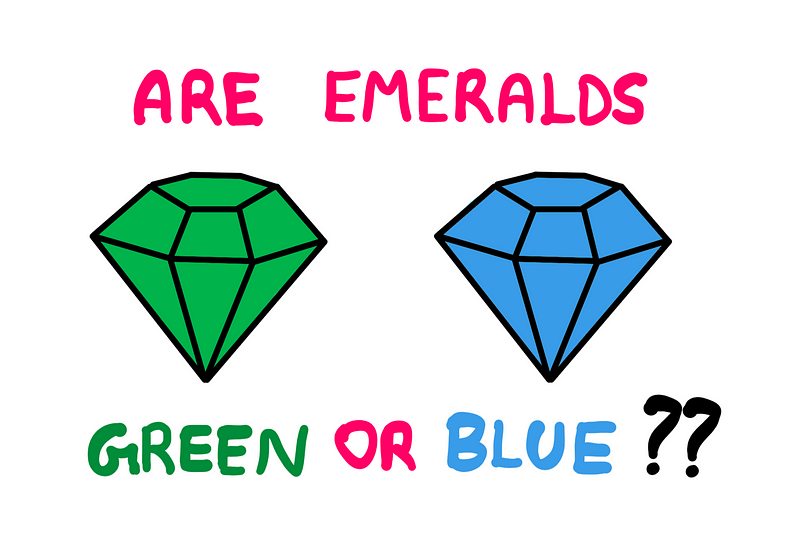Exploring the Grue Paradox: A Philosophical Inquiry
Written on
Understanding Induction's Role in Science
The grue paradox presents a significant challenge to the scientific principle of induction. In this essay, I will address how this paradox undermines the objective validity of induction, a cornerstone of scientific inquiry. In prior discussions, I tackled the concepts of mathematical induction and the raven paradox, both of which are essential for grasping the nuances of the grue paradox.
To fully appreciate the implications of the grue paradox, we must first revisit the importance of induction in scientific practice. Science fundamentally relies on a systematic approach that includes:
- Making empirical observations and collecting data on a phenomenon.
- Formulating a hypothesis regarding the cause of the observed phenomenon.
- Conducting experiments to validate the hypothesis, ultimately leading to the establishment of scientific laws that predict future occurrences.
In essence, scientific laws arise from a cycle of observation and inductive reasoning. However, the transition from hypothesis to law is complex, and I have explored this in another detailed essay, which you may find insightful.
The Challenges of Induction in Scientific Philosophy
A significant issue within science is the uncertainty surrounding the rationale behind its functioning. Every scientific law is merely a model based on past observations derived through induction. If the observed patterns shift, the law may no longer be applicable.
Induction appears reliable until it encounters a single contradictory instance, which can undermine our confidence in a scientific law. John Stuart Mill advocated for the validity of induction by asserting that nature exhibits regularities, which we can only discern through inductive reasoning. Though this argument is circular, it has been supported by various philosophers, including Max Black.
Hans Reichenbach expanded on this idea, proposing that induction is the only means by which we can infer the characteristics of the unexamined aspects of nature. He posited that if induction fails, so too does the foundation of science. Bertrand Russell and Rudolf Carnap shared similar views, with Carnap even attempting to create a probability-based system of inductive logic in his work, “Logical Foundations of Probability” (1950). However, philosophers like Karl Popper and Thomas Kuhn critiqued this approach.
The discourse was further complicated by Carl Gustav Hempel's raven paradox and Nelson Goodman's subsequent grue paradox, which emerged in his book, “Fact, Fiction, and Forecast.” This paradox has garnered significant attention in philosophical circles and warrants exploration.
The Grue Paradox Demystified
Traditionally, we identify emeralds as green gemstones, a characteristic attributed to the presence of chromium or vanadium. The prevailing law states, “all emeralds are green.” However, a well-respected scientist proposes a new law: “all emeralds are grue,” meaning:
- All emeralds will be green until December 31, 3022.
- From January 1, 3023, all emeralds will turn blue.
To encapsulate both characteristics of emeralds, the term “grue” (green-blue) is introduced.

If we accept this scientist's hypothesis, each day we observe green emeralds serves as a confirmation, supposedly enhancing our belief in the hypothesis. Yet, does this truly bolster our confidence? The answer is no, encapsulating the essence of the grue paradox. If such confirmations do not elevate our trust in this hypothesis, how can we rely on any scientific law?
As we delve deeper, let’s examine the paradoxical nature of confirmations.
The Complexity of Confirmations
The grue paradox, along with the raven paradox, fundamentally questions how confirmation influences our belief systems. This dialogue becomes increasingly intricate when we acknowledge that, under certain conditions, confirmations can actually disprove a hypothesis. For example:
Suppose we assert, “All men are less than 100 feet tall.” If we discover a man measuring 99 feet, this observation seemingly supports the hypothesis; however, it would also shake our confidence in it.
Consider another scenario involving ten cards, numbered from ace to 10, shuffled and laid face down. If your hypothesis states, “no card with value n is in the nth position from the left,” and you confirm this nine times, your belief should remain strong. Yet, if the last card must logically be a 10, the hypothesis is falsified.
Richard K. Guy humorously addressed such notions in his paper, “The Strong Law of Small Numbers.” For those interested, I have explored its implications in a separate essay.
Where does this leave us regarding induction?
Induction's Fragile Existence
Paradoxes like the grue and raven highlight a critical truth: we lack a comprehensive understanding of inductive logic outside of mathematical contexts. Though induction appears to function, its determinism falters in broader applications, revealing the limitations inherent in our human nature.
The first video titled "Grue: Goodman's Riddle" delves into the intricacies of the grue paradox, illustrating its implications and significance in understanding induction.
The second video, "The Grue Paradox," further explores the philosophical dimensions of this paradox, providing insights into its relevance within the broader context of scientific inquiry.
As we navigate these complexities, it's essential to recognize that while our grasp of induction is limited, it remains the best tool we possess for making sense of our universe. If you wish to support future explorations like this, consider contributing on Patreon.